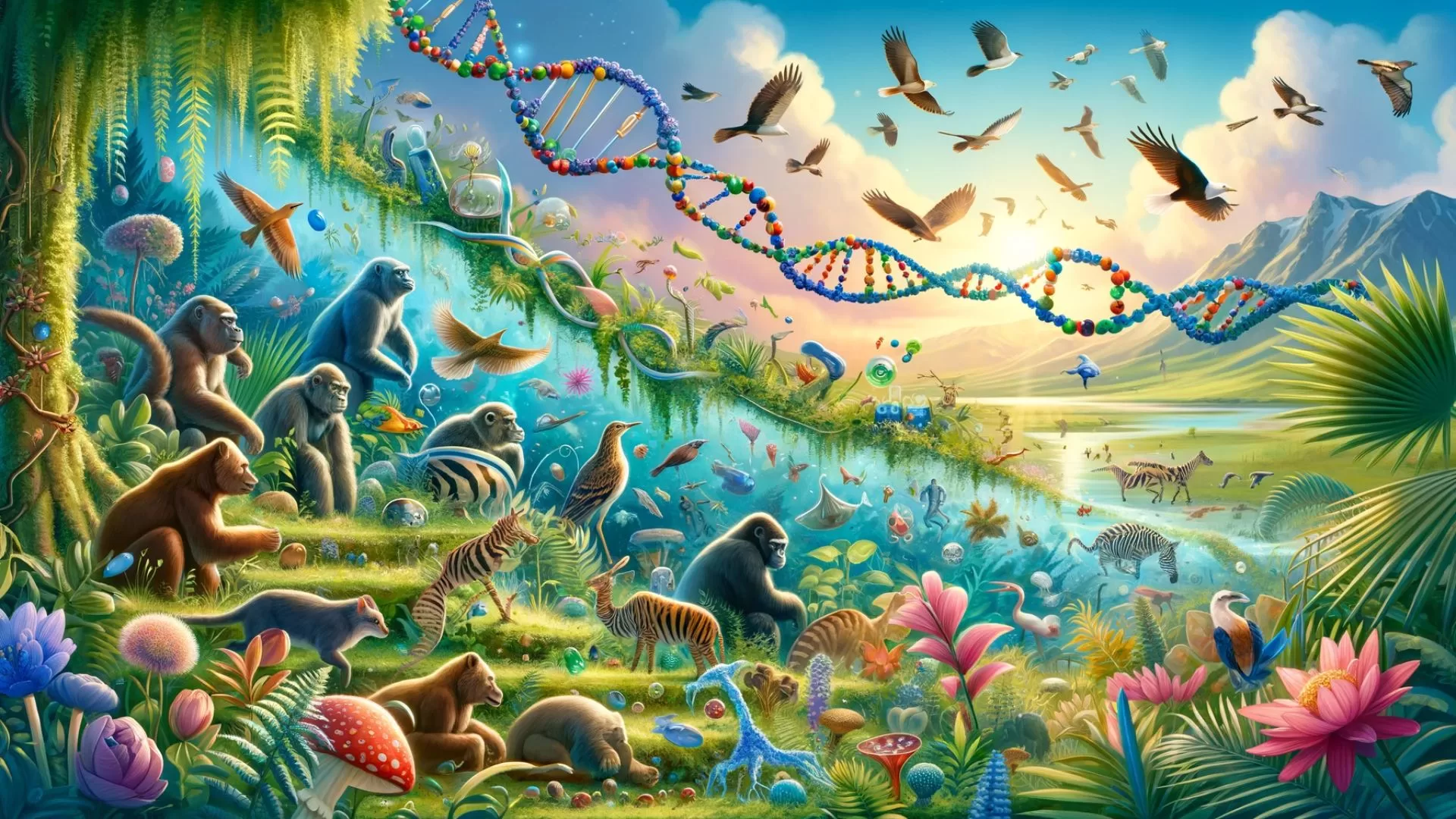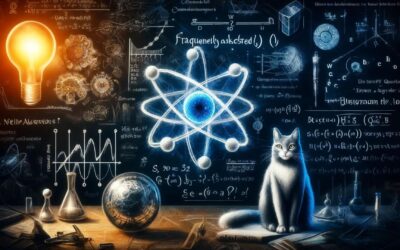You’ve heard about evolution and natural selection, perhaps in a classroom, a documentary, or while reading a science article. These concepts are not just central themes in biology; they are the threads weaving the story of life on Earth. Let’s explore some frequently asked questions to enhance your understanding, using real-life examples to illustrate these fascinating processes.
What Is Evolution?
Evolution is the process through which species of organisms change over time through changes in their genetic material. Think of the flu virus. Ever wondered why you need a new flu shot every year? That’s evolution in action. The flu virus constantly evolves, changing its genetic makeup, so last year’s vaccine might not be effective against this year’s strain.
How Does Natural Selection Work?
Natural Selection, first proposed by Charles Darwin, is often simplified to “survival of the fittest.” It’s the process where organisms better adapted to their environment tend to survive and produce more offspring. A classic example is the peppered moth in England. During the Industrial Revolution, soot blackened trees where the moths rested. Dark-colored moths, once rare, became common because they were less visible to predators on the soot-covered trees.
Why Do Species Evolve?
Species evolve primarily due to changes in their environment or due to mutations in their genetic material. For instance, when a population of organisms migrates to a new environment with different conditions, they gradually adapt to these new conditions. Over generations, these adaptations can lead to the development of a new species.
Can We See Evolution Happening?
Yes, evolution is observable in many instances. Besides the flu virus, consider antibiotic resistance in bacteria. When bacteria are exposed to antibiotics, those with mutations allowing them to survive the antibiotic will reproduce, leading to a population of antibiotic-resistant bacteria.
Is Evolution Just a Theory?
The term “theory” in science doesn’t mean a guess or a hunch. A scientific theory is a well-substantiated explanation of some aspect of the natural world, based on a body of evidence. The theory of evolution is supported by an overwhelming amount of evidence from various fields, including genetics, paleontology, biochemistry, and ecology.
How Does Evolution Impact Human Life?
Understanding evolution is crucial in many areas. In medicine, it helps us understand how pathogens evolve and how our bodies have adapted to fight diseases. In agriculture, knowledge of plant evolution informs breeding practices to develop more resilient crops.
How Long Does Evolution Take?
Evolution can happen over various timescales. While we might think of it as a process taking millions of years, it can also occur rapidly. For example, some bacteria can evolve resistance to antibiotics in a matter of weeks or months.
Embrace the Knowledge
Now that you have a deeper understanding of evolution and natural selection, consider how this knowledge impacts your view of the natural world. Perhaps next time you receive a flu shot or hear about antibiotic resistance, you’ll think about the incredible process of evolution at work. Use this knowledge to appreciate the dynamic and ever-changing nature of life on Earth, and share it to foster a greater understanding of our world. The story of life is ongoing, and you are part of it. Embrace this knowledge and let it enrich your perspective.
Why Should You Care?
Learning about evolution and natural selection is vital because it’s fundamental to understanding the biological world around us. This knowledge explains the diversity of life on Earth, the functioning of ecosystems, and has practical implications in medicine, agriculture, and conservation. It’s not just academic; it’s about understanding the very fabric of life and our place within it.
Key Takeaways
- Evolution is the process of change in species over time due to genetic variations.
- Natural Selection is a key mechanism of evolution where organisms better adapted to their environment tend to survive and reproduce more.
- Real-life examples like flu virus evolution and antibiotic-resistant bacteria illustrate these processes in action.
- The theory of evolution is a well-supported scientific explanation, not just a speculation.
- Evolution impacts human life in areas like medicine, agriculture, and understanding biodiversity.
- Evolution can occur quickly, such as bacteria developing drug resistance in a short period.
Keywords
- Evolution: A process where species undergo genetic changes over generations.
- Natural Selection: The survival and reproduction of organisms best suited to their environment.
- Genetic Material: DNA or RNA that carries information essential for the growth, development, and reproduction of an organism.
- Mutation: A change in the DNA sequence that can lead to different traits in organisms.
- Species: A group of similar organisms capable of interbreeding and producing fertile offspring.
- Adaptation: The process by which a species becomes better suited to its environment.
- Pathogens: Microorganisms that can cause disease.
- Antibiotic Resistance: The ability of bacteria to withstand the effects of an antibiotic.
- Scientific Theory: A well-substantiated explanation of some aspect of the natural world.
- Biodiversity: The variety of life in the world or in a particular habitat or ecosystem.
Myth Buster
Myth: Evolution is just a theory with little evidence.
Reality: Evolution is a well-established scientific theory supported by extensive evidence from genetics, fossil records, and observational studies.
Myth: Humans evolved from monkeys.
Reality: Humans and monkeys share a common ancestor but evolved along different paths.
Let’s Talk
- How does understanding evolution impact our approach to medical treatments and disease prevention?
- Can you think of other examples where evolutionary theory is applied in everyday life?
- How might understanding evolution and natural selection change the way we address environmental and conservation issues?
Share your thoughts and perspectives in the comments below. Your insights are valuable in enriching our collective understanding of these fundamental concepts!












0 Comments